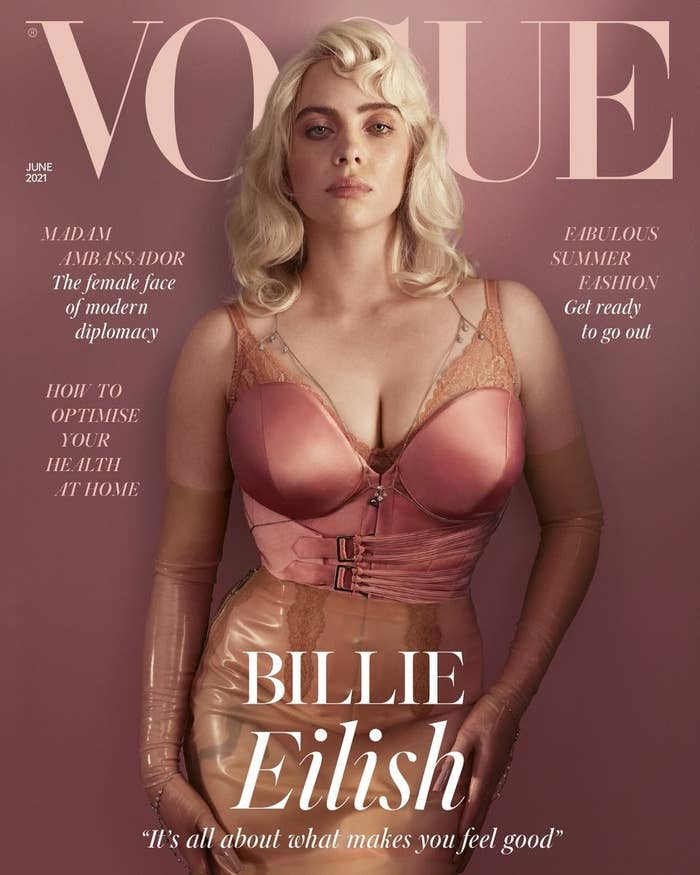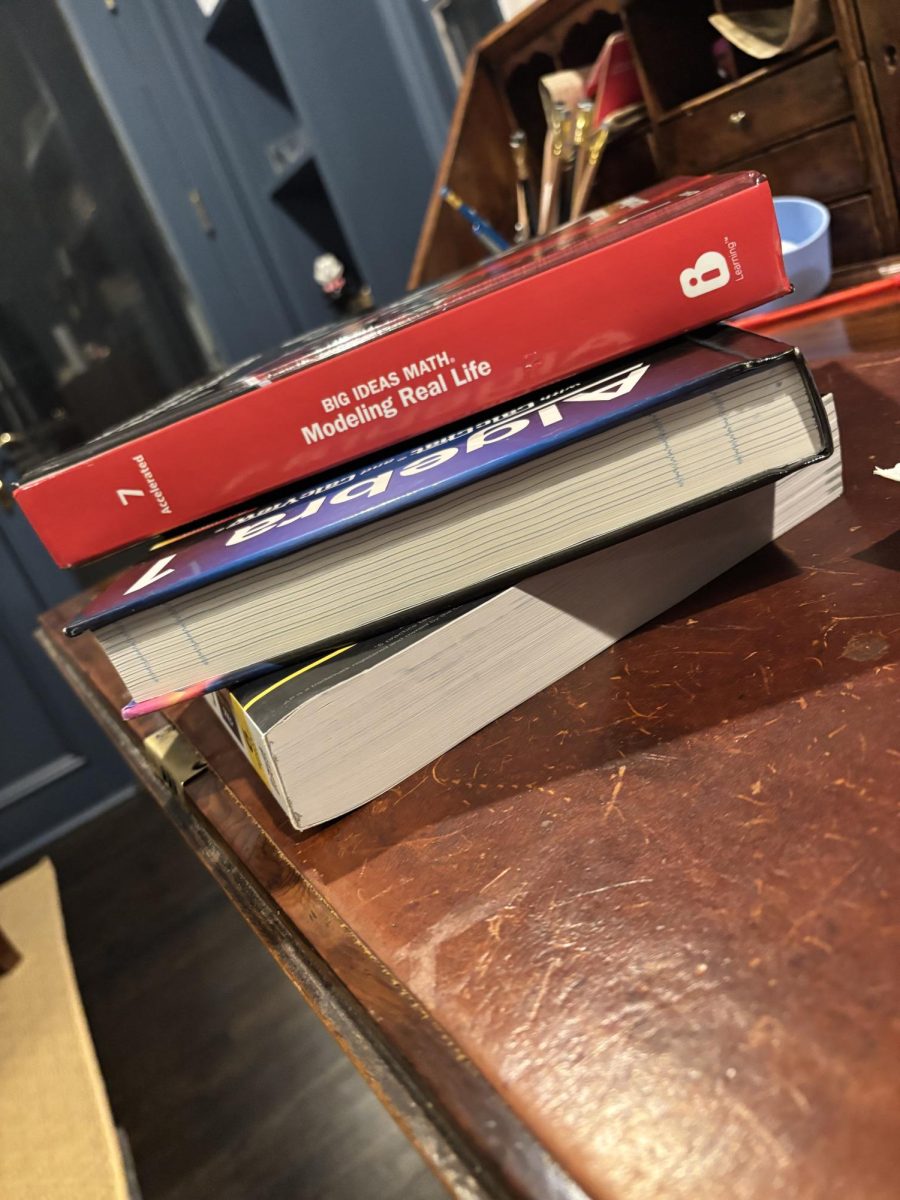Billie Eilish is a creative personality known for her vocal talent, dark pop music style, and her signature fashion sense: bold, baggy clothing and black hair with a striking green stripe. Now, Eilish is unrecognizable on British Vogue’s new cover with blonde hair, a revealing outfit, and comparable to Marilyn Monroe. Why the sudden change of style? This she discusses during her Vogue interview.
“She knows that corsets will rile people. Although Eilish wanted to explore their beauty – the shapes, lacing, design – she was also drawn to their original restrictive function. ‘If I’m honest with you, I hate my stomach, and that’s why,’” Vogue quotes. To stay creative yet comfortable, Eilish decided to wear a corset during her cover photoshoot. Although corsets are one of the more “controversial garments in the history of fashion,” that is not the concern. The concern is that Billie Eilish’s original style is eye-catching because of its drastic oversizing, patterns, colors, and layers, but never is her style imposing because of it’s tight fit and typical female icon style. Eilish can say she wore a corset because “It’s about what makes you feel good,” a bold quote on the bottom cover of the magazine. Though, is that really the reason she wore it? Or is it because her extreme style change would provoke traction?
“I feel more like a woman, somehow,” Eilish says, surprised. Why is it that when EIlish reveals her body, dyes and restyles her hair, and completely reforms her style she feels more “like a woman?” Women can feel affiliated with their gender with or without having a customary feminine appearance and Eilish is setting a bad example of this.
The interviewer presented Eilish the question, “‘If you’re about body positivity, why would you wear a corset? Why wouldn’t you show your actual body?’” Eilish’s response, after raising her eyebrows, was “My thing is that I can do whatever I want… It’s all about what makes you feel good. If you want to get surgery, go get surgery. If you want to wear a dress that somebody thinks that you look too big wearing, f**k it – if you feel like you look good, you look good.” Certainly, Eilish’s sincere belief is “if you feel like you look good, you look good” since throughout her whole career she has worn unique styles she must have felt comfortable in, otherwise would not have worn. However, these styles have consistently been loose-fitting and epicene, so why the sudden change to traditional feminine garms? If her whole career Eilish has “felt good” wearing baggy, non-gender specific clothes, how can her reasoning for wearing the very opposite style be because she “felt good” in it? Even though Eilish’s true belief is to “wear what makes you feel good,” it is ironic that she underwent an extreme makeover immediately after her album release. Did Eilish decide to wear a corset and other revealing garmets because they made her feel comfortable? Or did she style herself with them because a makeover would promote her new album?
“Suddenly you’re a hypocrite if you want to show your skin, and you’re easy and you’re a s**t and you’re a wh**e. If I am, then I’m proud. Me and all the girls are hoes, and f**k it, y’know? Let’s turn it around and be empowered in that. Showing your body and showing your skin – or not – should not take any respect away from you.” Showing one’s skin can be empowering and should not be shamed. For instance, female celebrities such as Cardi B and Beyonce are praiseworthy because of their promotion of body positivity and undeniable confidence when showing their skin. However, Billie Eilish has promoted body positivity even when wearing her own unique style which hides skin. Now, Eilish seems to be disregarding her unique trait and is now falling in line with the customary female icon appearance to advance her popularity. It is unsettling to see women continuously ignoring their unique style and succumbing to society’s pressure that women can only be empowered once they wear revealing clothing.
Billie Eilish is not a hypocrite for changing her style, it is simply discouraging to see her lose her inspiring individuality for stardom.












